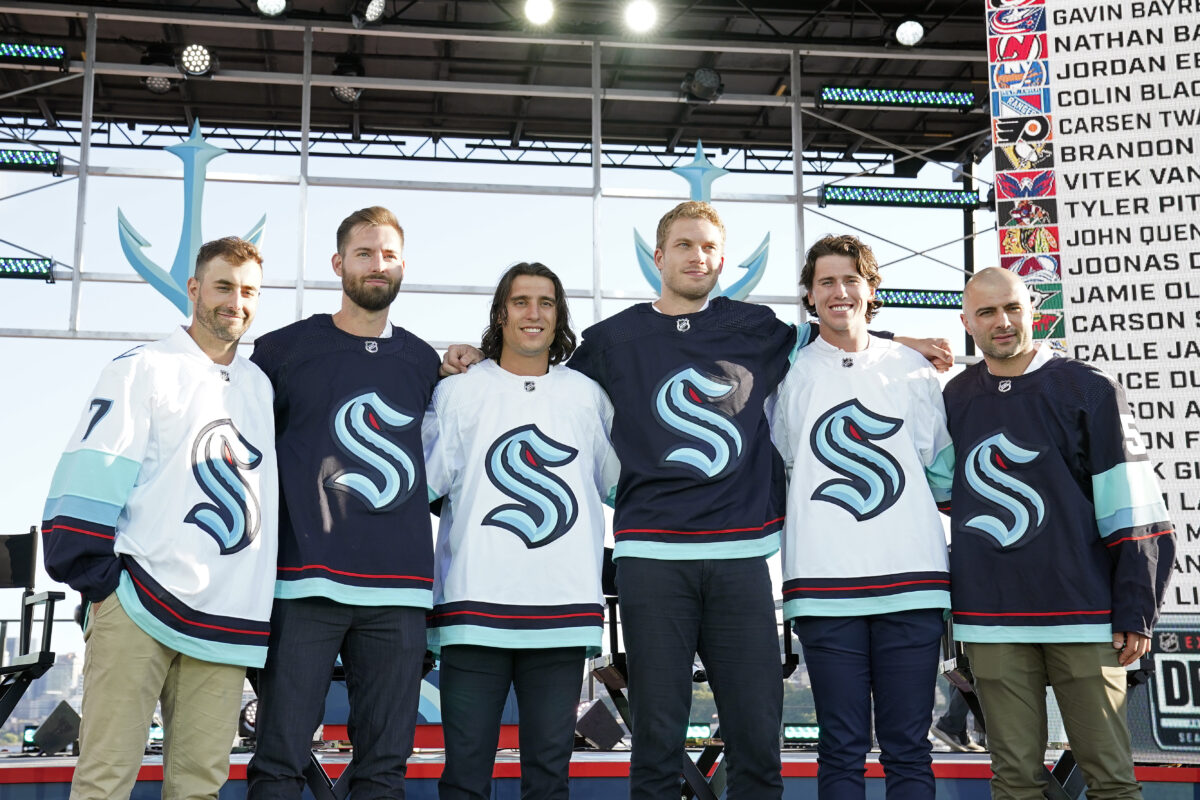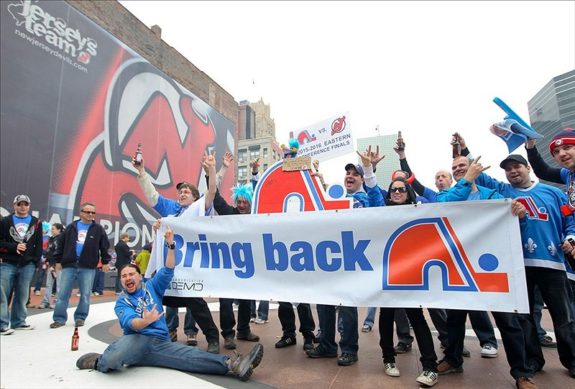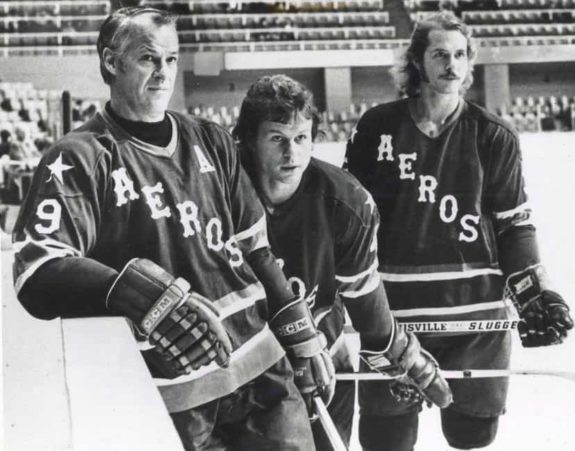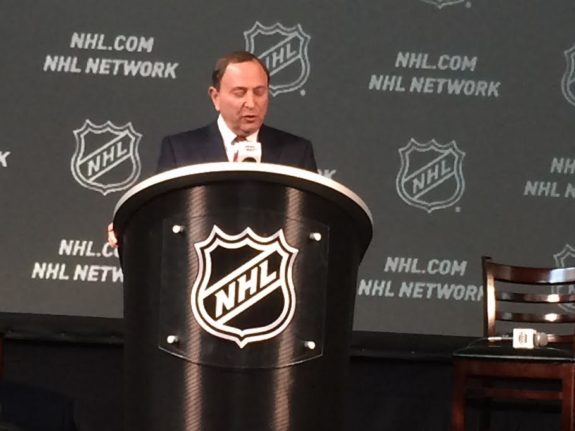*This is an article that was originally published in 2021
In a just few short years, the NHL has grown from 30 to 32 teams. One of those teams was placed in the very non-traditional hockey market of Las Vegas. The other was placed in Seattle — which has lacked an NHL team in the modern sports era — and recently filled its roster through the 2021 Expansion Draft.

Prior to the Golden Knights and Kraken franchise, the NHL last expanded in 2000 with the addition of the Columbus Blue Jackets and Minnesota Wild. The last of the four major North American sports to expand before the Golden Knights were the National Football League — whose Houston Texans became official in 2002 — and the National Basketball Association — whose New Orleans Pelicans began that same year. The NHL isn’t going to stay at 32 teams forever, so when will the next wave of teams come?
When Another League Does It First
With the addition of Seattle, the NHL ties the NFL for most teams with 32. It took almost 20 years for hockey to catch up, and it’s hard to imagine they’ll overtake any of the other leagues anytime soon. By no means is the NHL playing copycat, but until another league shows it can support more than 32 teams, I don’t expect the NHL to experiment. Doing so would be overly ambitious for them.
When the Canadian Dollar Stabilizes
Even while some dream of European expansion, the most logical city for NHL expansion is, of course, Quebec City. The city was the former home of the Nordiques team and has a brand-new, state-of-the-art, NHL-ready stadium in Videotron Centre. With a fanbase ready for the return of hockey, what’s holding the NHL back? That would be the economics of the Canadian dollar.
Lost on the normal fan is the immense financial complexities of having a league that’s half in Canada and half in the United States. Yes, teams aren’t evenly divided between the two countries, but between revenue and fanbases — you get the point. With the Canadian dollar weaker than the United States dollar, it’s not the optimal business situation for the NHL to expand north of the border. Remember, it was similar situations that led to the relocation of the original Winnipeg Jets franchise and the Quebec Nordiques. That’s also what derailed Quebec’s most recent expansion bid.

With the construction of Videotron Centre and its long history, Quebec City already has a leg up on any other potential Canadian market. With the expansion of the Ottawa Senators in 1992 and the relocation of the Atlanta Thrashers in 2011, Canadian expansion isn’t completely off the NHL’s radar. It’s not a question of if, only a question of when.
When the United States Markets Emerge
Assume the NHL wants to stay stateside for the foreseeable future. It’s hard to predict exactly where their next team would go. Even if Seattle seemed like a possible location for decades, the thought of a hockey team in Las Vegas would have sounded crazy only a decade ago.
The success of the Golden Knights might convince the NHL to consider other out-of-the-box markets. That could open the door to any number of cities. Following the lead of Vegas and Seattle, it might be a city where minor league hockey was successful in the past. Although, after having two failed teams in the past 40 years, Atlanta probably does not make that shortlist.
One market of interest is Houston, Texas. Billionaire Tilman Feritta — who also owns the NBA’s Houston Rockets — commented in 2017 he wanted to bring an NHL team to the city. The city was formerly home to one of the World Hockey Association’s most successful teams in the Houston Aeros.

In 2019, NHL Commissioner Gary Bettman denied any current efforts to bring a team to the city. (from ‘NHL Commissioner: No Active Efforts To Bring Team To Houston,’ Houston Chronicle, 5/3/2019) However, in Sep. 2019, Feritta said he’s still exploring options to bring an NHL franchise to Houston.
When an Expansion Fee Is Agreed Upon
Bill Foley and the other owners of the Golden Knights paid an outstanding $500 million dollar expansion fee for their new team. During the last wave of NHL expansion, that fee was a mere $80 million in comparison. While that may seem like a bargain, the initial wave of NHL expansion — the “Next Six” of 1967 — paid $2 million apiece (from ‘Cost of NHL Expansion Team Goes From $2 million To $500 million,’ Las Vegas Review Journal, 6/22/2016). Accounting for inflation, that would be about $18 million today.
The 1967 expansion fee was so low in comparison because the league and its revenues were a fraction of what they are today. As the league grows, the expansion fee will increase. Vegas and Seattle are considered the same “wave” of expansion, as the NHL committed to two teams. When they consider expansion again, who knows what that fee will climb to.
When Would it Happen?
The lucky news for prospective expansion franchise owners is that after the success of the Golden Knights, the NHL is riding an expansion high. If Seattle experiences similar results, the timetable could be a few years if the NHL wants to keep the ball rolling. Don’t expect Bettman to rush anything out of impulse, however.

We also have to consider the thing every hockey fan hates to think about: a lockout. With the current NHL Collective Bargaining Agreement (CBA) extension expiring in 2026, another lockout may be on the near horizon. If a lockout does happen, expect the NHL to shelve any ideas of expanding to new cities. Even if a lockout is avoided, how the issue of future expansion is addressed — if it even is addressed — in discussions for a new CBA will give us a better idea of how much of a priority both the league and players consider it.
